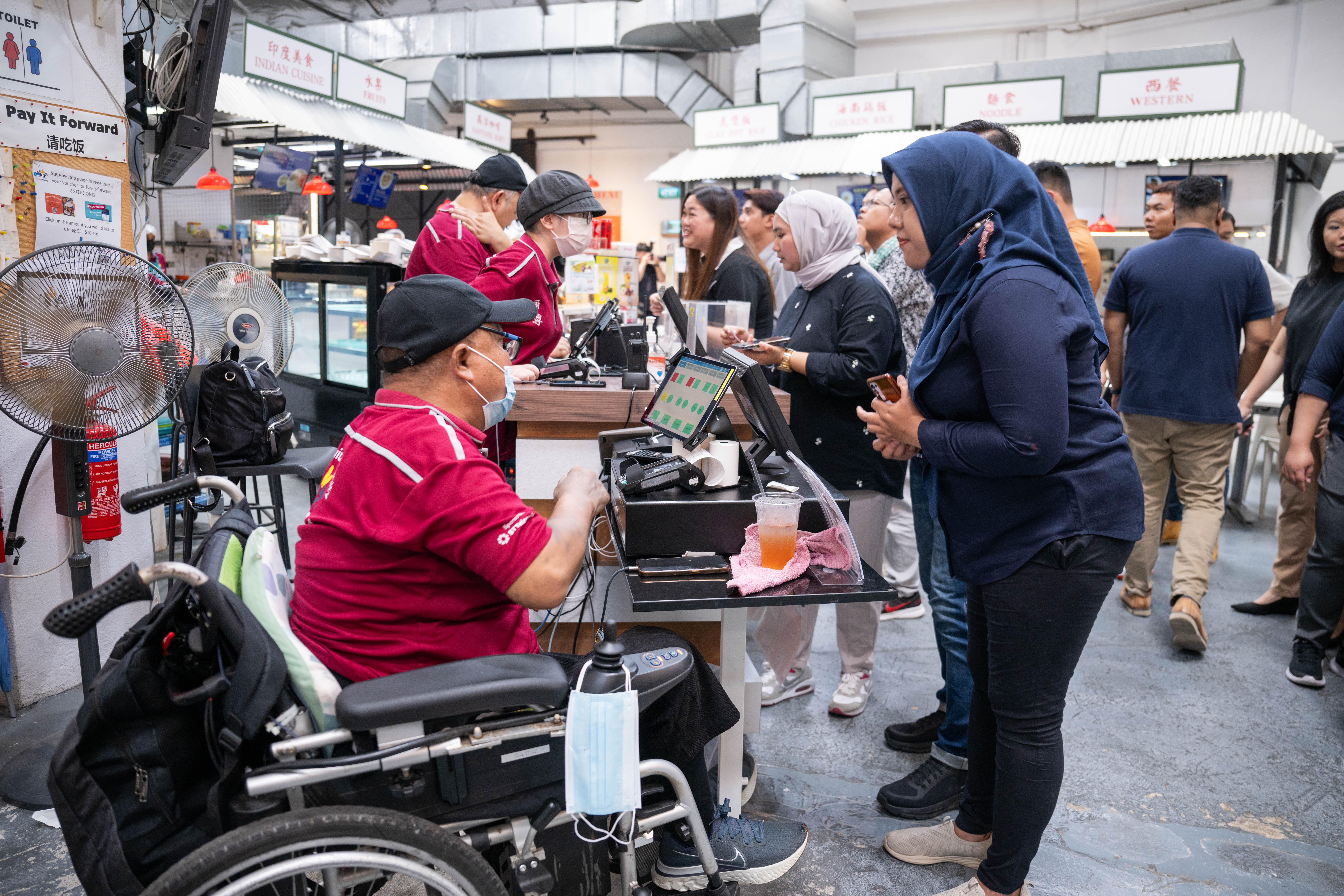In Singapore, Dignity Kitchen stands out as a unique restaurant where most of the employees are individuals with disabilities or societal disadvantages, providing them with the opportunity to lead meaningful lives.
Since its launch in 2010, Dignity Kitchen has trained over 400 individuals in food preparation, cooking, and service skills.
Why 'Dignity'?
Koh Seng Choon, an engineer with a college degree from the United Kingdom, had worked in Europe, China, and the United States before returning to Singapore to start a consulting career.
Motivated by a desire to help people with disabilities and the disadvantaged, he began community volunteer work before founding Dignity Kitchen in 2006 after realizing that people with disabilities were often underpaid or found it very difficult to secure employment.
Dignity Kitchen was conceived as a restaurant that brings together disabled individuals as chefs, waiters, and even delivery personnel.
Initially, no one wanted to invest in Koh's project because training regular people to cook is already challenging, and it would be even more so for physically challenged people.
Knowing he could not rely on others for funding, Koh mortgaged his property and raised SGD200,000 (US$148,000) to build the first Dignity Kitchen in 2010, four years after he conceived the idea.
At first, he wanted the staff, including those with mental health issues or visual impairments, to wear badges identifying them as disabled for customer empathy.
"I was a bit idealistic. I thought people would buy food from the disabled... But no one did," Koh said.
“People came and saw 'mental health' on the badges and turned away."
Despite increasing acceptance of people with disabilities in Singapore, the food sector remains sensitive.
"They won't buy from people with, for example, blemishes on their hands from dialysis or eczema," Koh told Tuoi Tre News.
“This is the origin of the name Dignity. We want to attract diners with good food, not charity."
People with disabilities coming to Dignity Kitchen are interviewed and then undergo 22 days of training in kitchen procedures and other tasks before being employed.
During Tuoi Tre News’ visit, Dignity Kitchen was bustling with customers, mostly office workers from nearby offices for lunch.
The serving area is divided into separate zones such as rice dishes, noodle dishes, Western dishes, and beverages.
Customers order at the counter, pay, get a number, and wait for their meal just like at any other restaurant.
All employees, despite their limitations, are assigned specific tasks based on their skills and constraints.
Many initiatives for people with disabilities
After about 10 years of operation, by 2020, Dignity Kitchen had stabilized.
However, the COVID-19 pandemic significantly reduced the demand for dine-in services and severely affected its business.
The restaurant needed to find alternative sources of income, which meant changing how it trained employees.
One of the first technological innovations at Dignity Kitchen began in April 2021 with the Dignity on Wheels project, meaning employees used electric wheelchairs to deliver food to customers within a 1km radius of the restaurant.
As an engineer, Koh continued with other technological innovations, such as a robotic waiter service.
With Singapore's efforts to produce at least 30 percent of its food supply locally by 2030 and minimize waste, Koh recognized the growing importance of food waste management and urban agriculture.
The restaurant built a small farm to train staff in caring for hydroponic vegetables.
Realizing that not everyone can be trained for sales jobs, Koh initiated Dignity Mama. This project involves youths with neurological disorders like Down syndrome and their mothers selling second-hand books at local hospitals.
The idea is for these youths to learn basic business skills while also providing employment for their mothers.
"A mother will never abandon her child," Koh told Tuoi Tre News.
Initially, hospitals were not keen on the idea.
However, after Dignity Kitchen was featured on a local TV program, hospitals began to support the project.
Koh's journey with the social enterprise Dignity Kitchen has been long and challenging, with moments when giving up seemed inevitable. With determination, he has persevered to this day.
"There were times when I thought about quitting every day. I'm an engineer, I’m not trained in disability services or business operations. But I kept going for the people here," Koh expressed his resolve.
Like us on Facebook or follow us on Twitter to get the latest news about Vietnam!






















































